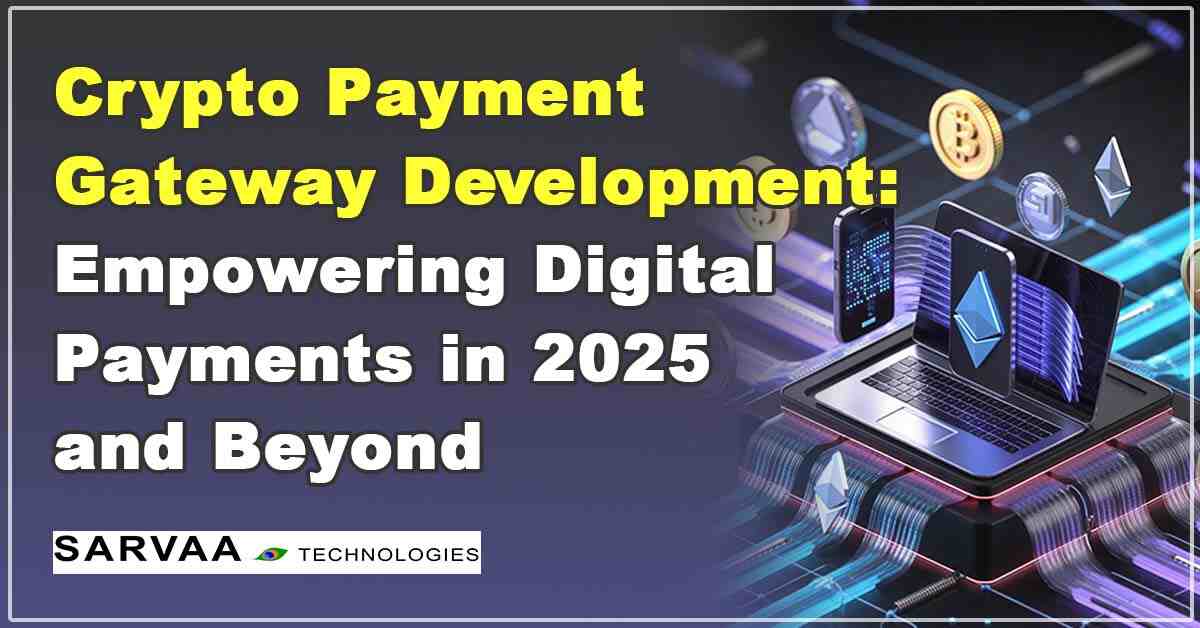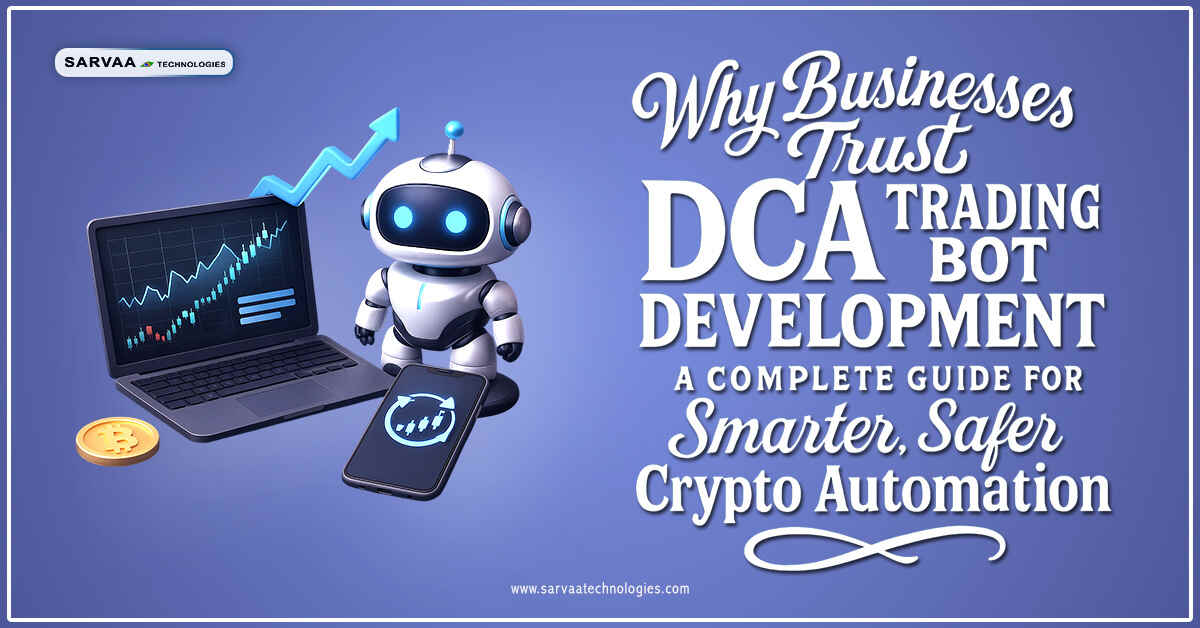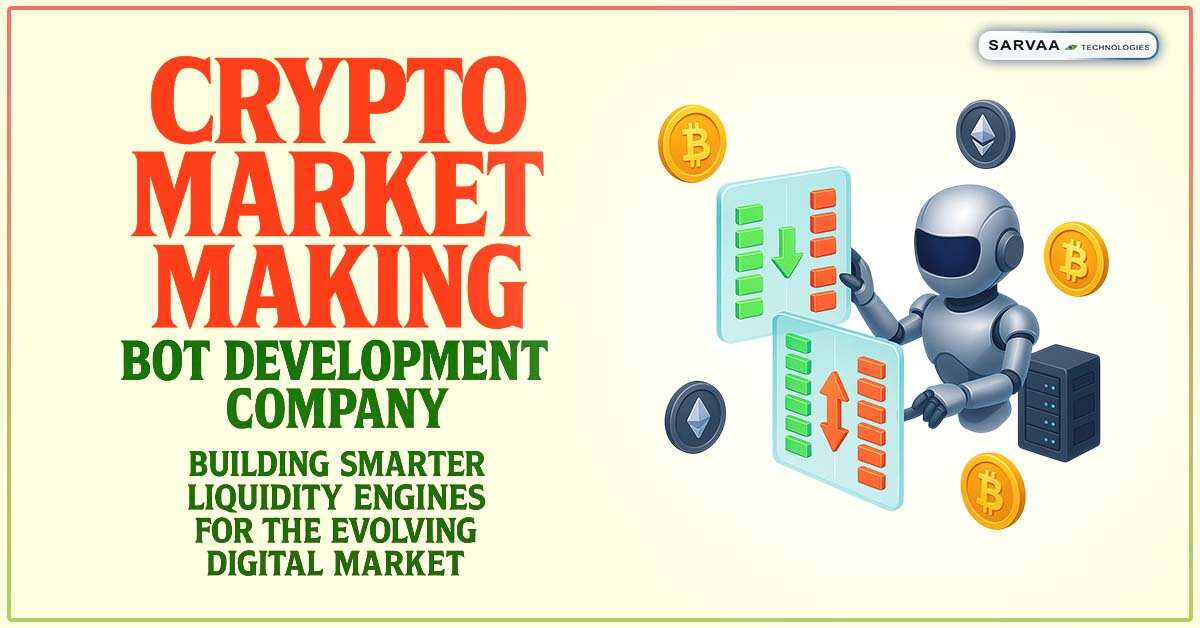The continuous push towards digital transformation has transformed the way we pay, receive payment and transfer value within industries. By the year 2025, cryptocurrency will become more of a medium of exchange rather than an experimental asset.
Whether it is a multinational corporation or a startup that has rapidly risen to prominence, businesses the world over are currently seeking the development of crypto payment gateways as a means of streamlining transactions, increasing the variety of payments, and providing frictionless user experiences.
Against this vibrant ecosystem, Sarvaa Technologies remains ahead of the pack providing user-friendly, safe and progressive payment solutions to date and beyond.
This blog demystifies all the things that brands should know about crypto payments and how to adopt them, including technologies, trends, benefits, and actual effects, to have a business that is future-proof.
The Future of Crypto Payment Gateways in 2025-2026
Crypto payment gateways have rapidly transformed niche services into generic payment intermediaries, which are defining the manner in which the value is exchanged online and offline. These gateways will handle transactions valued above 5.5 billion worldwide in 2025; the growth rate of over 20% CAGR, as merchant adoption and customer demand rises.
The major payment gateways currently serve as e-commerce, offline shops, Software-as-a-Service, and B2B sellers. Reforms to the regulatory system in countries such as Asia and Europe have helped expedite the trust of merchants and hence minimize the risks, defining the tax, compliance and reporting requirements.
Omnichannel integration also became a necessity now, however, companies are developing payment orchestrators, which enable smooth crypto acceptance in mobile applications, POS terminals, invoices, and online checkout.
Payments have become channel-agnostic, and companies can openly enjoy a latent competitive advantage by letting their customers use digital assets to pay any time they interact with an establishment.
How Crypto Payment Gateways Work: A Layman’s Guide
Fundamentally, a crypto payment gateway is a digital gateway that links sellers and buyers together- allowing companies to accept cryptocurrencies like Bitcoin, Ethereum and stablecoins in a fast and secure manner. When a buyer opts to pay with crypto on the checkout, the gateway immediately accesses the blockchain where the transaction is carried out and the validity of the transaction and the funds are settled on, whether in crypto or the requested fiat currency of the merchant.
State-of-the-art systems are now providing real-time conversion, dozens of digital coin support, and even automated crypto-to-fiat swaps that allow protecting businesses against volatility. In addition to enabling payments, the new generation gateway provides complete-fledged dashboards, transaction insights, and inherent fraud detection.
Further utility is provided by powerful APIs and plug and play modules, which enable merchants to add crypto payment functionality to existing web and mobile applications with little effort or coding skills.
Latest Technical Innovations: What Sets 2025 Gateways Apart
The development of crypto payment gateways in 2025 will be characterized by the fast improvement of security, speed, and scalability. Among these changes, a move toward stablecoin-first policies may be identified that companies are getting more accustomed to payment settlements in USDC or USDT in order to minimize price volatility.
- The other important development is a hybrid of crypto and open banking. With bank rails being merged with crypto infrastructure, payment gateways enable fiat on-ramps, instant crypto conversion and compliance workflows.
- Multi-asset support, cross-chain compatibility, and smart contract automation open the path to the flexible and transparent methods of managing funds, automating payouts.
- The use of AI to detect fraud, multi-layered encryption, and continuous penetration testing have become a basic requirement.
- Privacy features: like state-of-the-art KYC/AML modules as well as anonymized transaction routing respond to the increasing regulatory and user requirements.
- What has been achieved is a new benchmark: highly customizable, secure crypto payment gateway development solutions that are scalable to any size and adapted to any future requirement.
Key Features Every Crypto Payment Gateway Solution Should Offer
The achievement of the correct crypto payment gateway developer or company will be dependent upon analyzing the features of each solution. The best gateways in 2025 should be able to support:
- Multi-currency (BTC, ETH, stablecoins, altcoins) and multi-currency
- Live processing of transactions and settlements of low latency
- Mobile payments, such as NFC and QR
- Secure key-managed built-in user wallets
- Automated crypto to fiat and fiat to crypto exchange
- APIs that are developer friendly to easily integrate with the e-commerce, SaaS and point-of-sale environments
- Security at the enterprise level: DDoS, multi-factor authentication, encryption
- Regulatory reporting and automation of KYC/AML
User experience is also negotiable - modern gateway focuses on clean, intuitive merchant dashboard and buyer frictionless checkout, decreasing abandonment and increasing retention.
The 2025 Business Case for Adopting Crypto Payment Gateway Solutions
The need to modernize payment infrastructure is increasing pressure on businesses around the world as consumers move towards fast, private and variable payment sources.
The benefits of development of crypto payment gateways are strategic that transcend hype:
- Radical decrease in the cost of payment across the borders and the settlement time
- Reach to more audiences, especially the crypto-native population
- Reduced chance of charge back and dishonest disputes
- Easy accounting / easy reconciliation through automation of reporting
- Increased data security and control through blockchain transparency
To businesses keen on future-proofing their business operations until 2026 and further, adopting crypto payments is an indication of innovation that would place them at the center of online transactions as well as their success in combating the changing trends in payments.
Navigating the Regulatory and Security Landscape
With the maturing market regulation has followed. The crypto payment gateway is currently required by the regulatory authorities internationally, to adhere to stringent KYC (Know Your Customer), AML (Anti-Money Laundering), and data security requirements.
Corporations should collaborate with other developers, who are compliant and transparent enough to develop secure and legally sound solutions. With the sophisticated gateways of today, automated compliance features are provided like instant identity verification and blocklist checking. It makes organizations easily meet the flexible legal requirements.
Also, advanced cybersecurity measures, such as periodic third-party audits, zero-knowledge security modules, and rest and transit data encryption, are critical to faith and sustainability.
Choosing a Crypto Payment Gateway Development Partner: Why Sarvaa Technologies
Not every provider of crypto payment gateways is equal. It is important to not only look at the tech stack of the prospective technical partner when choosing one, but also their customization, support, and long-term interaction. The perfect development team delivers:
- Deep blockchain knowledge: Knowledge of all aspects of smart contracts to token economics.
- Experience: Scalable, modular gateway solutions built to meet your special business requirements.
- Security focus, end-to-end, architecture upgrades to maintenance.
- Clear communications, price predictability and after sales service.
At Sarvaa Technologies, these values are a priority, and we engage with our clients to develop a bespoke solution to crypto payment gateways to meet every challenge of any industry.
Future Trends and Opportunities for Crypto Payments
The shift toward the use of digital currencies in everyday dealings is only going to gain momentum, whether in the form of central bank digital currencies (CBDCs), novel models of tokenized loyalty and rewards, the integration of conventional and decentralized banking.
Key future trends include:
- Increasingly demanding decentralized, peer-to-peer payment gateways and hybrid payment models.
- Implementation of programmable payments-programmed, conditional transactions through smart contracts.
- Cryptocurrency usage in new sectors, including hospitality, health technology, in government and non-profit organizations.
- More attention to privacy enhancement technologies and payment experiences that are fully self-custodial.
Those companies that are ready to take the next step in digital payment evolution- by doing it in 2025- will be positioning themselves to be successful in future, get loyal customers and provide a global advantage.
In Conclusion
The ability of clients, customers and enterprise leaders to use cryptocurrency to make daily payments will see the development of crypto payment gateways as the right way to do so to become the winning brands of tomorrow.
At Sarvaa, we are prepared to develop safe, dynamic and future-proof solutions to meet the aspirations of each client. The future is not something coming, it is already present and your business might grab it, courtesy of the right approach.
To contact us regarding, feel free to fill your details on our contact page. Once we receive the details, we will immediately contact you for discussion.






